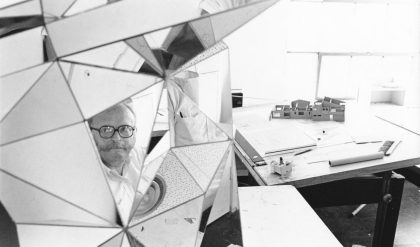In this article, we would look into the life and contribution of Claude Levi-Strauss in the field of Anthropology and Philosophy. Along with Franz Boas and James G. Frazer, he is considered to be the ‘Father of modern Anthropology’. He is accredited for changing the perception of the Western world about culture and civilization. To understand the man, we need to trace his lifeline, his education, influences, principles, works, and criticisms (he is a mortal, after all!).

Education and Sociology
The philosopher and anthropologist were born in Brussels, Belgium in the year 1908. Like many Belgians at the time, he studied in France and attended college at the Sorbonne in Paris studying the subjects of Law and Philosophy. Interestingly as time passed, his interest moved away from law and he swayed towards philosophy solely.
He became a secondary school teacher but his affairs with anthropology and sociology bloomed when he traveled to Sao Paulo University in Brazil as a visiting professor. His wife, Dina, was a professor of ethnology at the university. It was at this point, Claude traveled to the Amazon forest and studied the indigenous tribes of the area.
World War 2 forced him to take arms up to protect his country of France. However, after the capitulation of France in 1941, freed him of his service and moved to New York, USA. There, he taught at the New School for Social Research and at the Ecole Libre des Hautes Etudes which he co-founded with other French emigrates in New York including Henri Focillon, Jacques Maritain and Roman Jacobson.
In the year 1948, he returned to Paris to receive his doctorate. Professor Claude rose to prominence the next year when he published, ‘The Elementary Structures of Kinship’. This work turned out to be his magnum opus and was revered in the circles of Anthropology (More about the work later).
Influences On His Work: A Prerequisite To His Principles
In order to understand his work, we need to dive into his thinking mechanism. As a student of Philosophy, he went against the contemporary thinking lines of French philosophers of those times such as Neo-Kantianism, Bergsonism, phenomenology, and existentialism. This propelled him towards sociology and anthropology.
He also rejected Durkheim’s study in a conventional form although, he used Durkheim’s finding in his own study. In the aforementioned study of kinship and exchange in his publication, ‘The Elementary Structures of Kinship’ where he gives an example of inexpensive French restaurants in which low-quality wine is served in equal quantity but not consumed by the person receiving it or the host, interestingly, they fill the glass of the neighbor. This process goes on until everyone has their glasses filled. He referred to this as a ‘social contract’ among the people.
While keeping the concept of a social contract in mind, one can elucidate on two important principles in his work. The first one states that social and cultural life cannot be uniquely explained as a version of functionalism. In simpler terms, he does not believe that empirical studies prove the intricate nature of the phenomenon being studied and hence, is not an empiricist.
Rather he was a structural anthropologist first, inspired by the ideas of Saussure, which focuses on the elements of a system combine together in contradiction to the intrinsic nature earlier mentioned. Telescoping the concept, it can be worked out to the two notions of ‘difference’ and ‘relation’. Corroboratively, he states that these two notions work in opposite and contradict each other which provides dynamism in the realm of the society.
A controversial aspect of his work has been the scope of his study. Whilst most anthropologists study and limit their studies to their own working area, Strauss applies it universally. This is a caveat in his armor metaphorically speaking. The main criticisms come from the English speaking society.
Notions on Structure, Myth, and Art
Structuralism– Strauss pioneered a branch of anthropology called cultural anthropology. According to this, a culture, which can be viewed as a society, can be better understood in terms of relations within the structure. In this case, i.e., society. Therefore, one should look at the elements making this society to understand it. Some of these elements could be viewed in light with reference to the contours of kinships, patterns in mythology, art, etc.
The study that brought prominence to him as mentioned earlier was regarding Kinship. Strauss elucidated on the fact that the essential structure of kinship, on which all the systems are discovered are the set of four types of organically linked relationships: brother-sister, husband-wife, father-son, and mother’s brother-sister’s son.
According to him, it was not decency or empathy which formed these elements but mere consciousness. Hence, human nature forces us to take the actions we do. He believed that all societies followed these structures but his critics never agreed with him sighting his work is less empirical than required.
Myth– Amongst one of his most salient work is his study of Myths. Strauss compares or rather declares Myth to be a separate logic. He states that though Myths are usually are absurd logically, they are very similar and persistent in almost every culture.
Another important thing to note about Myths is that, unlike jokes or fables, a myth’s meaning does not completely get lost in translation. Strauss provides the argument through the structuralism concept by saying that it is the difference and relation concept which plays a part in this.
His primary interest was in these structures present in the myths itself. It is a language itself and is similar to them. According to Levi-Strauss a myth also has its langue which is the synchronous structure which enables the specific parole of a certain myth. While details may vary from myth to myth, the structure remains the same.
He illustrated this by throwing light to binary relations or binary opposites in the Greek play, ‘Oedipus’. The son marrying his mother is one binary event and when Oedipus kills his father is another one. This is the structure he referred to for all myths bringing in the concept of kinship too. The great psychoanalyst, Sigmund Freud took inspiration from the play and gave the theory of ‘Oedipus complex’.





Comments are closed.